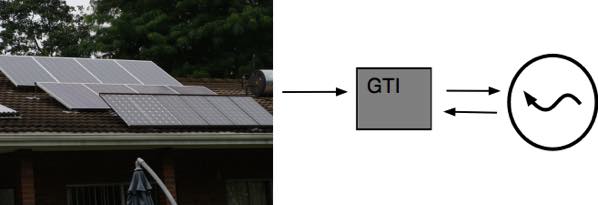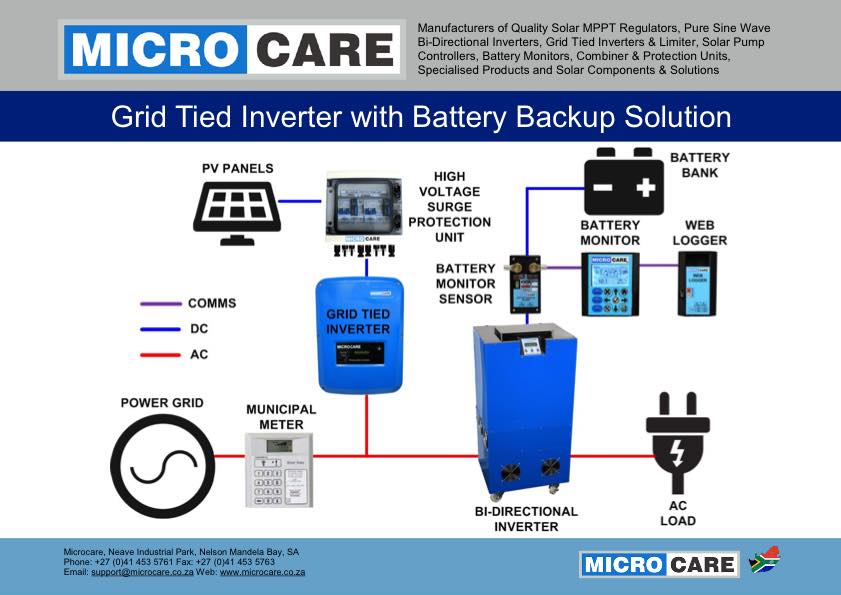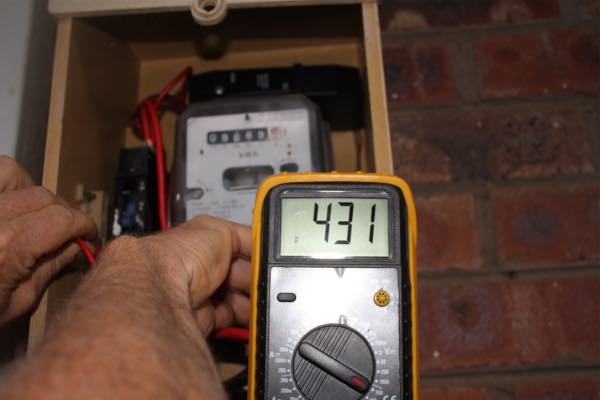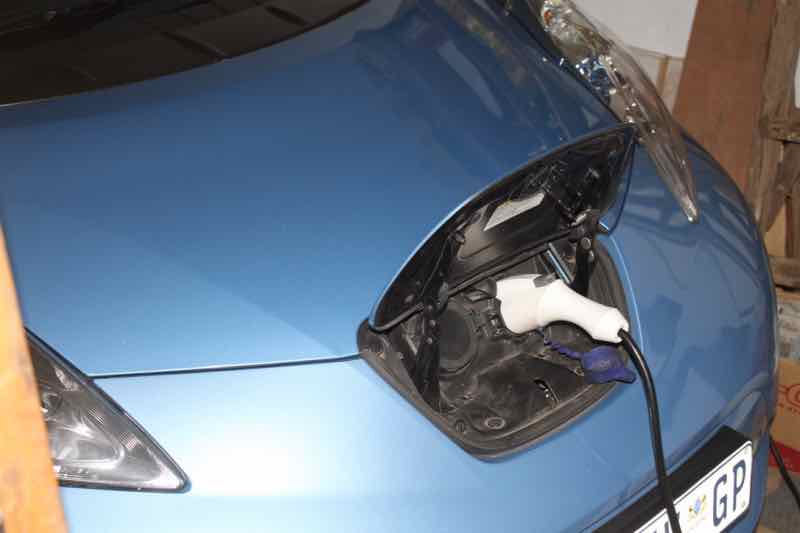Grid tied residential solar power
A grid tied residential solar power generator is the choice way to capture the sun's energy. It is relatively inexpensive, requiring no batteries and is not technically difficult to install.
The photovoltaic panels energise the grid-tied inverter which sends excess power to and draws from the mains when the need is too great.
The basic principle is that during the day when there is plenty of energy arriving from the sun, it is captured by photovoltaic panels; and conducted as direct current to the grid-tied inverter.

This page was last updated by Bernard Preston on 9th August, 2025.
The inverter turns the direct current into AC which feeds into your distribution-board and can be used to supply all the appliances in your home.
When there is a surplus from the solar panels it is exported to the grid and sold to the utility.
However at night when the PVs are producing no power, electricity is drawn from the grid to supply your needs.
There is special protection built into the GTI; should the grid be turned off by the utility to do maintenance, the device shuts down immediately it detects no mains-voltage. Otherwise your solar power could electrocute a technician working on the cables on the street.
Since this happens only very occasionally in countries with a mature and stable-grid, it's not a problem.
However in countries like South Africa, or the Dominican Republic where there's load shedding virtually every day, it is hugely problematic.
Lightening strikes too can disrupt the grid, both damaging your residential solar power hardware and also preventing you from drawing from mains; or using the incoming energy from the sun.
Grid tied residential solar power
Grid tied residential solar power has serious limitations in countries with unstable utility-power. With the inverter having shut down because of load shedding, you are simply unable to use the sun's energy even though it is a bright day with plenty of radiation arriving at the panels.
It needs an AC source to synchronize with and batteries or the grid to which it can push power.
In most countries this might happen just a few times a year at most; one accepts the limitation. In the rare event of a hurricane like Sandy arriving where the whole infrastructure is seriously damaged, you'll be without power for a week or longer, despite full sunshine; but really that is unlikely to happen more than once in a decade perhaps. Climate change of course is challenging all our previous assumptions.
However in South Africa where the mains fails virtually every week, either because of Eskom load-shedding or a collapse of the local infrastructure where little maintenance has been done on the aging system, this basic grid tied residential solar power is not a viable option.
Rather you should opt for the far more expensive package of batteries and a second inverter that will provide solar energy to your home even though the GTI has shut down. It is problematic; or stay off the grid.
If you have a conventional grid-tied inverter, it can only provide electricity based on what the PV panels can directly generate from the solar energy arriving on any particular day.
However new generation hybrid inverters can also use the power stored in batteries as needed.
They use a mix of renewable energy from solar panels and that from the grid to charge the batteries; and supply the load as needed.
There remains the need for batteries and unless I'm grossly mistaken, the inverter may still shut down if the grid fails, or goes into load-shedding.
You'll notice that Microcare, a company involved in the advanced development of new systems, still uses two inverters if you wish to be grid-tied in a country with an unstable utility.

To my mind, in South Africa, it makes little sense to be grid-tied. Rather accept that there will be periods that you have surplus power that goes wasted than spend a fortune on an extra inverter; and risk having your hardware damaged by a mains voltage-spike.

This power surge last week would have destroyed any grid-tied residential solar power inverter; nearly double the usual voltage.
It did other damage however, and despite misgivings did give impetus to the need to go off the grid. The inrush current after the outage caused the voltage to fluctuate madly not only affecting home appliances but also often provoked the mains to trip once again.
We have now purchased an E-car to soak up that extra power that is generated on a sunny day; it all happened in the first week in January, so we have turned over a new blue Leaf.

And instead of going off the grid, we have opted for prepaid electricity that incurs no basic monthly-charges. The mains switch to the grid remains firmly in the off position, except during extended inclement weather, protecting us most of the time from surges.
The material expressed on this page is gleaned from the nutritional and environmental literature; it is clearly referenced. A plain distinction is made between the author's opinion and that which is scientifically proven. When in doubt consult your health professional.
To suggest a correction or clarification, write to Dr Bernard Preston here. Contact.
Newsletter
Our newsletter is entitled "create a cyan zone" at your home, preserving both yourself and Mother Earth for future generations; and the family too, of course. We promise not to spam you with daily emails promoting various products. You may get an occasional nudge to buy one of my books.
Here are the back issues.
- Lifestyle and ideal body weight
- What are ultra-processed foods?
- Investing in long-term health
- Diseases from plastic exposure
- Intensive lifestyle management for obesity has limited value
- A world largely devoid of Parkinson's Disease
- The impact of friendly bacteria in the tum on the prevention of cancer
- There's a hole in the bucket
- Everyone is talking about weight loss drugs
- Pull the sweet tooth
- If you suffer from heartburn plant a susu
- Refined maize meal and stunting
- Should agriculture and industry get priority for water and electricity?
- Nature is calling
- Mill your own flour
- Bake your own sourdough bread
- Microplastics from our water
- Alternative types of water storage
- Wear your clothes out
- Comfort foods
- Create a bee-friendly environment
- Go to bed slightly hungry
- Keep bees
- Blue zone folk are religious
- Reduce plastic waste
- Family is important
- What can go in compost?
- Grow broad beans for longevity
- Harvest and store sunshine
- Blue zone exercise
- Harvest and store your rainwater
- Create a cyan zone at your home
Useful links
When browsing use right click and "Open Link in New Tab" or you may get a bad gateway signal.
Did you find this page interesting? How about forwarding it to a friendly book or food junkie? Better still, a social media tick would help.
Address:
56 Groenekloof Rd,
Hilton, KZN
South Africa
Website:
https://www.bernard-preston.com